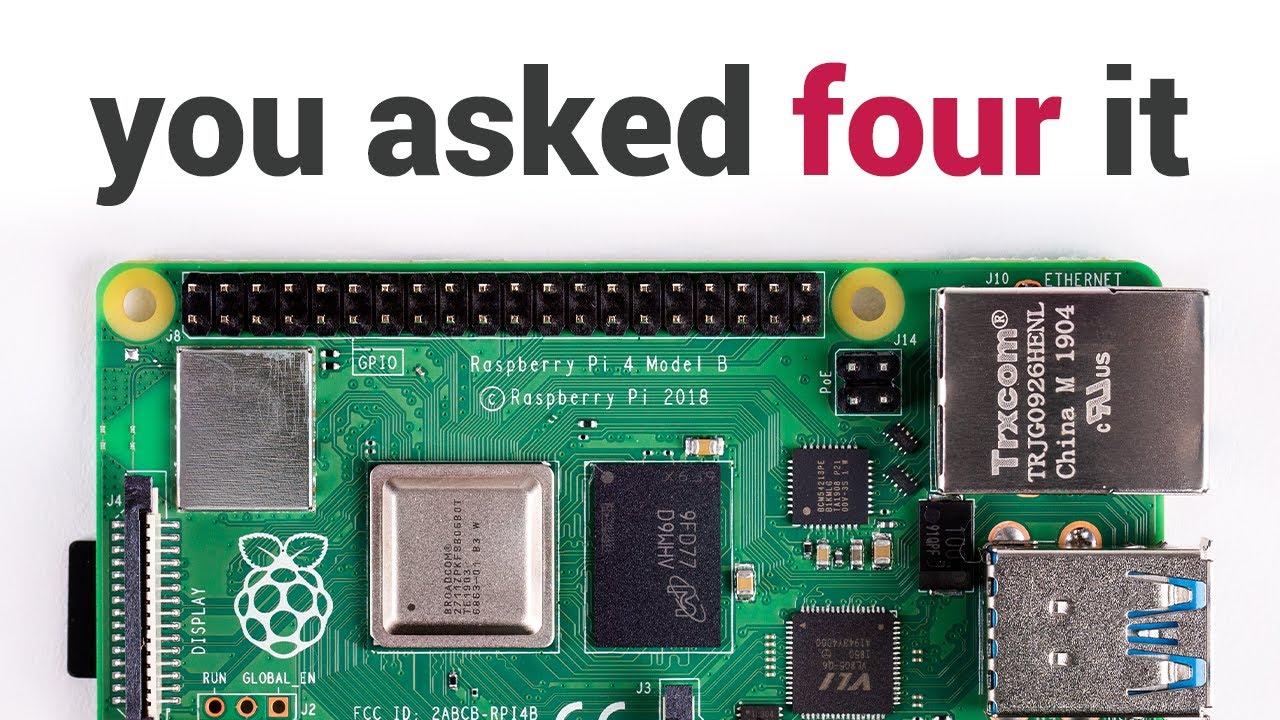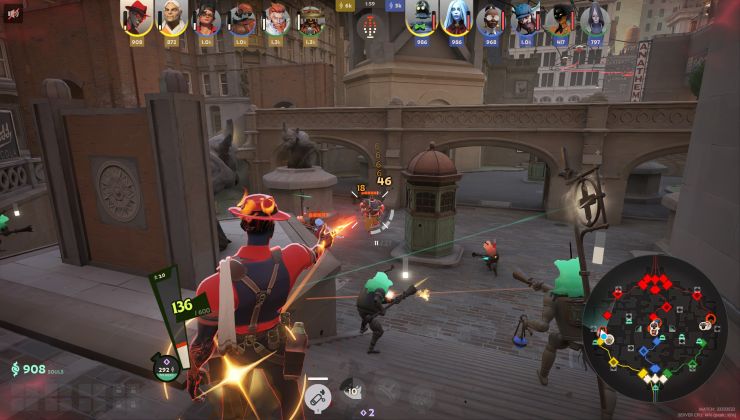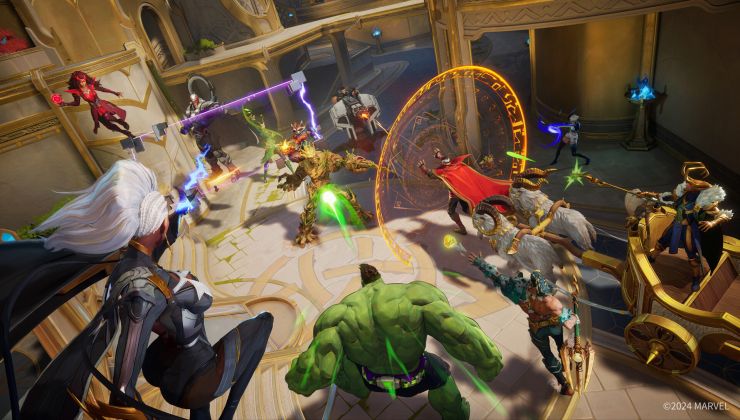Not something we usually cover here, but it's a fun bit of hardware news. The Raspberry Pi 4 is now official and it's out and ready to pick up.
Interestingly, they also overhauled their home-grown Raspbian Linux OS, as it's now based on Debian 10 Buster. To go along with this, their original graphics stack is being retired in favour of using the Mesa "V3D" driver developed by Eric Anholt at Broadcom. They say it has allowed them to remove "roughly half of the lines of closed-source code in the platform" which is a nice win.
Here's the breakdown of the hardware:
- A 1.5GHz quad-core 64-bit ARM Cortex-A72 CPU (~3× performance)
- 1GB, 2GB, or 4GB of LPDDR4 SDRAM
- Full-throughput Gigabit Ethernet
- Dual-band 802.11ac wireless networking
- Bluetooth 5.0
- Two USB 3.0 and two USB 2.0 ports
- Dual monitor support, at resolutions up to 4K
- VideoCore VI graphics, supporting OpenGL ES 3.x
- 4Kp60 hardware decode of HEVC video
- Complete compatibility with earlier Raspberry Pi products
You can see their quick announcement video below:

Direct Link
The price still sounds great too, especially now with different RAM options (price may be slightly different in various shops stocking them):
- 1GB - $35/£34
- 2GB - $45/£44
- 4GB - $55/£54
For those who love to tinker, it really sounds like a great little unit. I've still never picked one up but I've always wanted one to play with. Sounds like my wait was worth it, might have to set one up as a little media centre of some sort. The additional performance should be quite interesting for gaming too, could also make a good streaming unit with the Steam Link App for Raspberry Pi.
You can read their full announcement here.
> No mainline support
Thanks, no.
Yeah this is one of a couple of things which really have me torn over raspis. I have a couple, and they are great, but I have to keep in mind they are designed for education purposes. The SD card primary storage just doesn't cut it as any sort of production system. USB storage is an option now I suppose, and just keep a read-only boot partition on the SD card, but....
... no mainline support really irks me. It just seems like them keeping the keys way too close to their chest, and support ultimately is in their hands with kernel release being entirely up to their internal processes.
It's these things which keep me happy with my choice of the La Frite from Libre computer. All of their systems have support pushed upstream, they have u-boot/UEFI and also eMMC storage. A much more robust SBC in my opinion.
I personally dislike the Raspbian OS though, I would prefer Vanilla Debian. Right now i'm using [Ubuntu Mate](https://ubuntu-mate.org/raspberry-pi/)..I know what you mean, but - although it's probably less of an issue with these newer machines - on the original B+, there was a a very noticeable performance difference between Debian (or Arch) and Raspbian.
My laptop is a HP Core2Duo from 2012 that I'm pretty sure would be beaten by this thing.:D That's a good point. I'm still using a ten-year-old Atom netbook every day, and... yeah... £35, you say?
> No mainline support
Thanks, no.
Yeah this is one of a couple of things which really have me torn over raspis. I have a couple, and they are great, but I have to keep in mind they are designed for education purposes. The SD card primary storage just doesn't cut it as any sort of production system. USB storage is an option now I suppose, and just keep a read-only boot partition on the SD card, but....
... no mainline support really irks me. It just seems like them keeping the keys way too close to their chest, and support ultimately is in their hands with kernel release being entirely up to their internal processes.
It's these things which keep me happy with my choice of the La Frite from Libre computer. All of their systems have support pushed upstream, they have u-boot/UEFI and also eMMC storage. A much more robust SBC in my opinion.
The Raspberry PI 3 B+ and the Raspberry PI 4 support booting entirely from USB HDD or SSD. You don't need a boot partition on the SD card any longer. That's what I was trying to say in my previous post. I'm happily running [Ubuntu Mate](https://ubuntu-mate.org/raspberry-pi/) from my Seagate USB Hard Disk Drive.
Oh, and don't forget the 75k software packages in the repository which can be installed using Apt-get.
[https://launchpad.net/ubuntu/bionic/armhf](https://launchpad.net/ubuntu/bionic/armhf)
Last edited by Dragunov on 26 Jun 2019 at 1:35 am UTC








 How to set, change and reset your SteamOS / Steam Deck desktop sudo password
How to set, change and reset your SteamOS / Steam Deck desktop sudo password How to set up Decky Loader on Steam Deck / SteamOS for easy plugins
How to set up Decky Loader on Steam Deck / SteamOS for easy plugins
See more from me